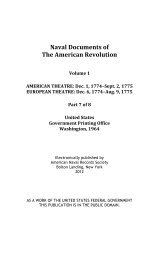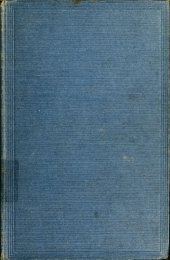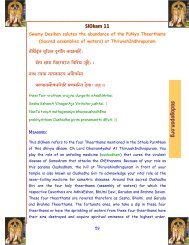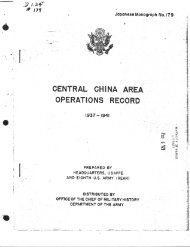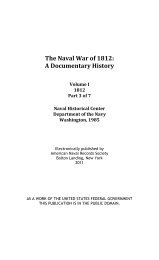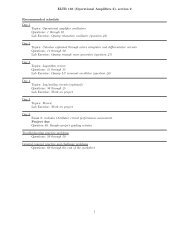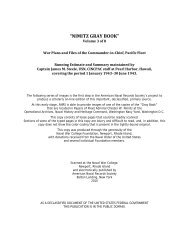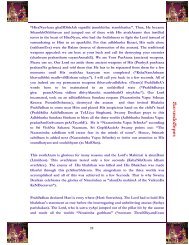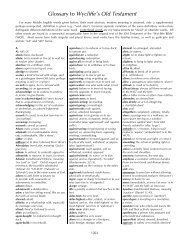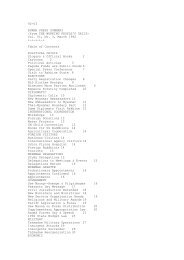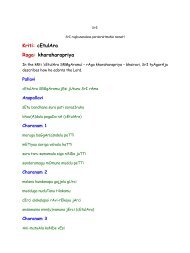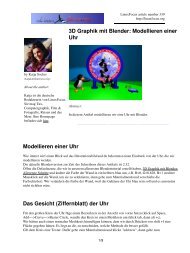ITALIAN BOOKSHELF (download as PDF) - Ibiblio
ITALIAN BOOKSHELF (download as PDF) - Ibiblio
ITALIAN BOOKSHELF (download as PDF) - Ibiblio
You also want an ePaper? Increase the reach of your titles
YUMPU automatically turns print PDFs into web optimized ePapers that Google loves.
458 Annali d’italianistica 30 (2012)<br />
understanding of the so-called “poetics of insult” <strong>as</strong> an instrument of public<br />
censure. The result is the most comprehensive analysis of the six tenzone<br />
sonnets within the larger Italian literary tradition to date.<br />
The book is in many ways the latest installment in Alfie’s career-long effort<br />
to pull comic poetry out from under the long shadow c<strong>as</strong>t by the courtly lyrics of<br />
the dolce stil nuovo. Arguing for the moral function of literary derision, Alfie<br />
grounds his readings of the tenzone within thirteenth-century debates over the<br />
nature, value and legitimacy of the Florentine nobility. In a marked departure<br />
from the approach taken in his earlier monograph (Comedy and Culture: Cecco<br />
Angiolieri’s Poetry and Later Medieval Society. Leeds: Northern Universities<br />
Press, 2001) — namely, that of distinguishing between the seemingly<br />
autobiographical claims made by jocose poets and their comic m<strong>as</strong>ks — Alfie<br />
plunders the Alighieri and Donati family histories to throw light upon the highly<br />
personal sequence of ad hominem attacks. Marriages, debts, parents, siblings,<br />
murder and revenge are just part of the lively cultural backdrop informing the<br />
two antagonists’ poetic slander. But much to the author’s credit, Alfie is careful<br />
not to let his biographical interpolations descend into facile speculation<br />
regarding the palinodic value of Dante’s subsequent meeting with Forese in the<br />
Commedia. The focus instead remains squarely on the tenzoni themselves, on<br />
their literary precursors and influence, and on their clear appurtenance to a<br />
robust yet currently understudied rhetorical tradition.<br />
The first of the book’s five short chapters begins with an examination of the<br />
poetry of blame (vituperium or improperium) in the decades leading up to the<br />
tenzone exchange. It provides a useful consolidation of scholarship on jocose<br />
poetry in general, and picks up several threads from Alfie’s earlier publications<br />
on some of the libelous, misogynist and misanthropic tropes commonly found in<br />
the comic literature of the Duecento. Citations from Brunetto Latini and others<br />
provide the theoretical framework debate poetry <strong>as</strong> forum for public reproach<br />
and correction. A working lexicon of vituperative motifs is then gleaned from<br />
close readings of three sonnets by the Florentine caposcuola of derisive verse,<br />
Rustico Filippi (ca. 1230-1295). The shift from Rustico’s anti-feminist satire to<br />
Dante’s invective against death in “Morte villana, di pietà nemica” is abrupt, but<br />
does nevertheless illustrate Dante’s familiarity with the critical terminology of<br />
vituperium (29-31).<br />
Alfie flexes his philological muscles in the next chapter, where all six of the<br />
tenzoni between Dante and Forese come under close scrutiny. A formal analysis<br />
of each poem is set against a wealth of socio-historical material relating to, for<br />
example, familial alliances, mercantile jargon and even female physiognomy.<br />
The author’s original insights regarding Forese’s enigmatic reference to<br />
“Solomon’s knot” in his first rebuttal sonnet to Dante are particularly<br />
convincing (40-43). Also worth noting is the care taken with the sonnets of both<br />
tenzonanti — Alfie escapes the bi<strong>as</strong> displayed by many dantisti by applying his<br />
scholarly rigor to Dante’s and Forese’s words in equal me<strong>as</strong>ure. What emerges



